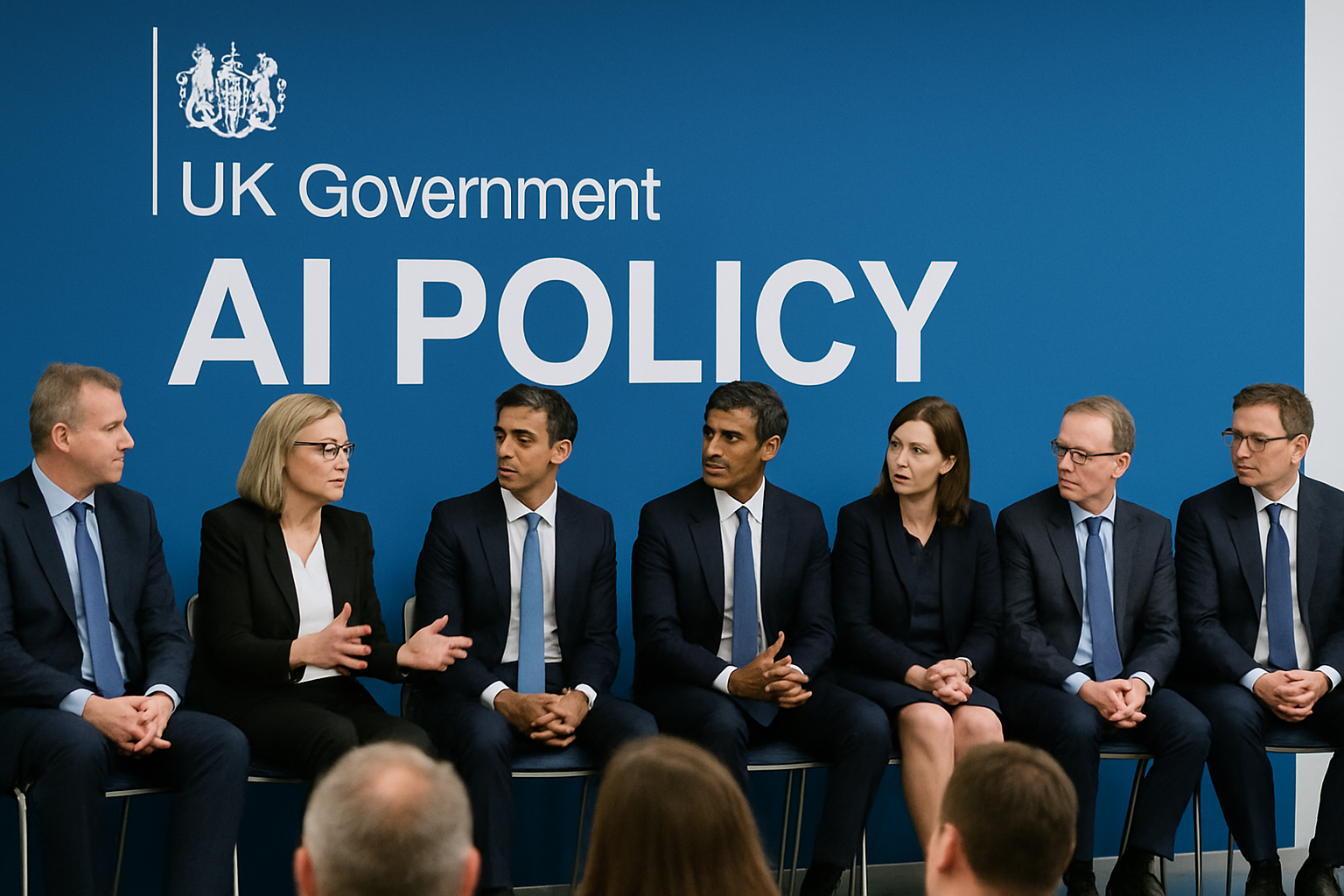Quick Take
- UK launches AI regulation working groups with Sony, Meta, OpenAI after 11,500+ consultation responses
- New framework protects creator IP while enabling tech innovation in creative sectors
- Culture Secretary Lisa Nandy leads cross-industry collaboration for economic growth
- Working groups tackle transparency, access rights, and innovation partnerships
- Britain positions as global leader in balanced AI governance attracting international investment
The UK government has unveiled a comprehensive AI regulation strategy that balances creator protection with technological innovation, following more than 11,500 industry consultation responses. The move positions Britain as a global leader in AI governance.
The government launched expert working groups addressing risk management featuring industry heavyweights including Sony Music Entertainment, The Guardian, OpenAI, Amazon, and Meta on July 16, 2025. This initiative forms part of Britain’s Modern Industrial Strategy ‘Plan for Change,’ directly tackling widespread business concerns while maintaining the country’s competitive edge in global AI markets.
Lisa Nandy, UK Secretary of State for Culture, Media and Sport, announced the comprehensive approach at London’s Media & Telecoms 2025 conference. She stated:
“We are determined to find a way forward that works for the creative industry and creators, as well as the tech industries. Creators are the innovators fundamental to our economic success in the future.”
Cross-industry collaboration drives policy innovation
Technology Secretary Peter Kyle and Culture Secretary Lisa Nandy jointly chair these groundbreaking discussions. The initial meetings focused on impacts, opportunities, and common ground between AI developers and creative professionals. Kyle emphasized:
“The work we’ll be taking forward in the coming months will ensure we can work in partnership to deliver a fresh start for creatives and AI developers alike.”
The working groups tackle three critical business challenges: improving transparency for rights-holders regarding AI training data usage, ensuring responsible access to creative content while protecting intellectual property, and fostering collaborative innovation between traditionally competing sectors.
Nandy reinforced the government’s commitment to:
“ensuring a copyright regime that values and protects human creativity, can be trusted and unlocks new opportunities for innovation across the creative sector and wider economy.”
This approach directly addresses widespread industry concerns while maintaining Britain’s competitive edge in global AI markets.
The consultation attracted participation from major players including the News Media Association, Alliance for IP, and Publishers Association, demonstrating unprecedented industry alignment. This collaboration signals reduced regulatory uncertainty and increased investment stability across both sectors.
Britain’s positioning attracts global investment
Britain’s balanced approach contrasts with more restrictive AI regulations emerging elsewhere. This positioning attracts international investment while protecting domestic creative assets. The framework encourages innovation without sacrificing intellectual property rights, positioning UK businesses advantageously in global markets.
The regulatory framework creates immediate opportunities for companies operating in both sectors. Organizations can now invest confidently in AI development knowing clear legal boundaries exist. Creative industries gain protection without stifling technological advancement, while AI companies access high-quality training data through legitimate channels.
The UK’s emphasis on cross-sector cooperation creates unique competitive advantages. Creative industries maintain revenue streams and intellectual property protection while gaining access to AI tools that enhance productivity and reach. Tech companies access legitimate, high-quality training data while avoiding costly legal disputes.
This collaborative model positions Britain as an attractive destination for AI startups and creative enterprises seeking regulatory clarity. The approach demonstrates how governments can foster innovation without choosing between competing industry interests.
Risk management and adaptive regulation
The working groups specifically address risk management in AI and copyright applications, ensuring safeguards keep pace with technological advancement. Regular policy updates based on industry feedback create adaptive regulations that respond to market changes rather than constraining them.
Regular meetings will continue refining policy recommendations, ensuring practical, workable solutions emerge from real-world industry expertise. This iterative approach maximizes stakeholder buy-in while maintaining regulatory flexibility.
The government’s commitment to both sectors as priority areas within the Modern Industrial Strategy signals long-term support and investment. This stability encourages businesses to make substantial commitments to UK operations and development activities.
Global implications and business opportunities
The UK’s approach may influence international regulatory frameworks, making British-developed solutions valuable in global markets. Organizations establishing operations under these balanced regulations position themselves advantageously for international expansion.
Companies should monitor these working group developments closely as they will define operational parameters for AI deployment across creative sectors. Early engagement with emerging guidelines provides competitive advantages and shapes industry standards.
This regulatory evolution represents more than policy adjustment – it signals a fundamental shift toward collaborative innovation that benefits all stakeholders. Business leaders who embrace this cooperative approach while these frameworks develop will shape the future landscape of AI and creative industry interaction.






